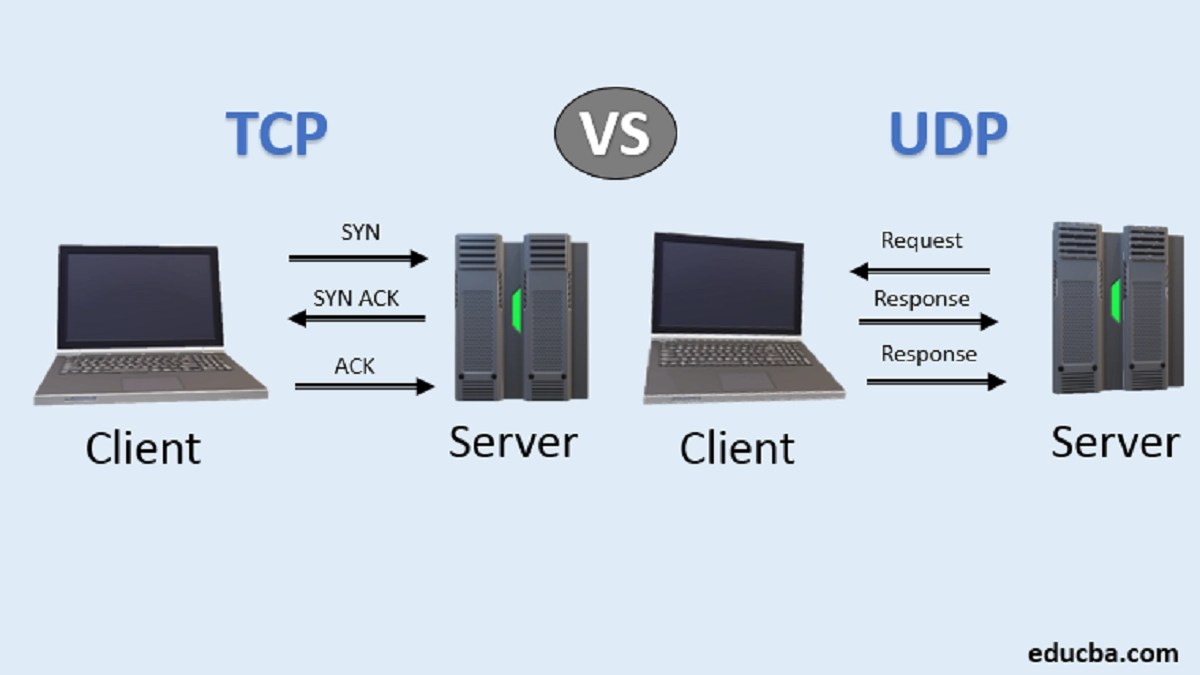TCP vs UDP: Everything You Need to Know
This article explains what TCP and UDP mean and also explains their differences. Click the link to read the full guide.
Author:Daniel BarrettJul 15, 2022127682 Shares1725438 Views

TCP Vs UDP: When setting up your router, you might have come across the terms TCP and UDP. You may be wondering what TCP and UDP mean and want to know more about them. This article explains what TCP and UDP mean and also explains their differences.
TCP vs UDP: What is TCP?
Short for Transmission Control Protocol, TCP is a feature that helps computers communicate over the internet. It is one of the main protocols in TCP/IP networks. TCP provides error-checking and guarantees delivery of data and that packets will be delivered in the order they were sent.
How Does TCP Work?
A TCP connection works by first establishing with the help of a three-way handshake. This is the process of initiating and acknowledging a connection. Once the connection is established, the data transfer begins, and when the transmission process is finished, the connection is canceled by the closing of an established virtual circuit.
Features of TCP
Here are the key features of TCP
- Delivery Acknowledgements
- Re-transmission
- Delays the transmission when the network is overloaded.
- Detects error easily
Advantages Of TCP
- It aids in establishing/setting up a connection between different types of computers.
- Independent operation based on the type of the operating system.
- TCP also supports many routing-protocols.
- Establishes internetworking between the organizations.
- TCP/IP model has a highly scalable client-server architecture.
- It can be operated independently.
- Supports several routing protocols.
- It can be used to establish a connection between two computers.
Disadvantages Of TCP
- TCP needs permission before finalizing a transmission.
- You can’t use TCP for broadcast or multicast transmission.
- TCP has no block boundaries, so you need to create your own.
- TCP offers many useless features. It may waste bandwidth, time, or effort.
- In this model, the transport layer does not guarantee the delivery of packets.
- Replacing protocol in TCP/IP is quite difficult.
- It doesn’t offer concise separation from its services, interfaces, and protocols.
TCP vs UDP: What is UDP?
Short for User Datagram Protocol, UDP is a connectionless protocol that works just like TCP but assumes that error-checking and recovery services are not required. Instead, it steadily sends datagrams to the recipient whether they receive them or not.
How does It Work?
UDP functions by a simple transmission method without implied hand-shaking dialogues for ordering, reliability, or data integrity. UDP also postulates that error checking and correction is not necessary or performed in the application, to avoid the overhead of such processing at the network interface level. It is also compatible with packet broadcasts and multicasting.
Features
Here are the key features of UDP:
- Supports bandwidth-intensive applications that tolerate packet loss
- Quicker run time
- Handling of bulk quantity of packets.
- Possibility of the Data loss
- Allows small transactions (DNS lookup)
Advantages
- No restrictions on a connection-based communication model; that’s why startup latency in distributed applications is low.
- The recipient of its packets gets them unmanaged, which also includes block boundaries.
- Broadcast and multicast transmission are also available with UDP
- Data loss can be made
- Small transaction (DNS lookup)
- Bandwidth-intensive app which endures packet loss
Also read: IPv4 Vs IPv6: Everything You Need To Know
Disadvantages
- In UDP protocol, a packet may fail to deliver or deliver twice. It may be delivered out of order, so you get no indication.
- Routers are quite sloppy with UDP, so they never retransmit it if it collides.
- It has no Congestion Control, and flow control, so implementation is the job of a user application.
- And it mostly likes to suffer from worse packet loss
Major Differences Between TCP And UDP
- The TCP protocol uses connections, while UDP doesn’t use connections.
- TCP is relatively slower than the speed of UDP.
- In terms of handshake protocol, TCP uses SYN, SYN-ACK, ACK while UDP uses no handshake protocols.
- For errors, TCP does error checking and also makes error recovery, on the other hand, UDP performs error checking, but it neglects flawed packets.
- TCP has acknowledgment segments, but UDP does not have any acknowledgment segments.
- TCP is heavy-weight, and UDP is lightweight.
Editor’s picks:

Daniel Barrett
Author
Latest Articles
Popular Articles